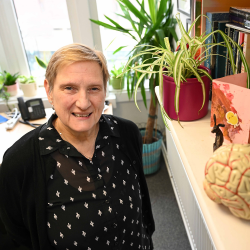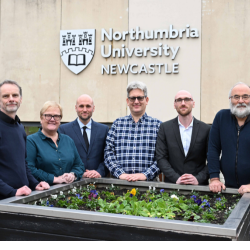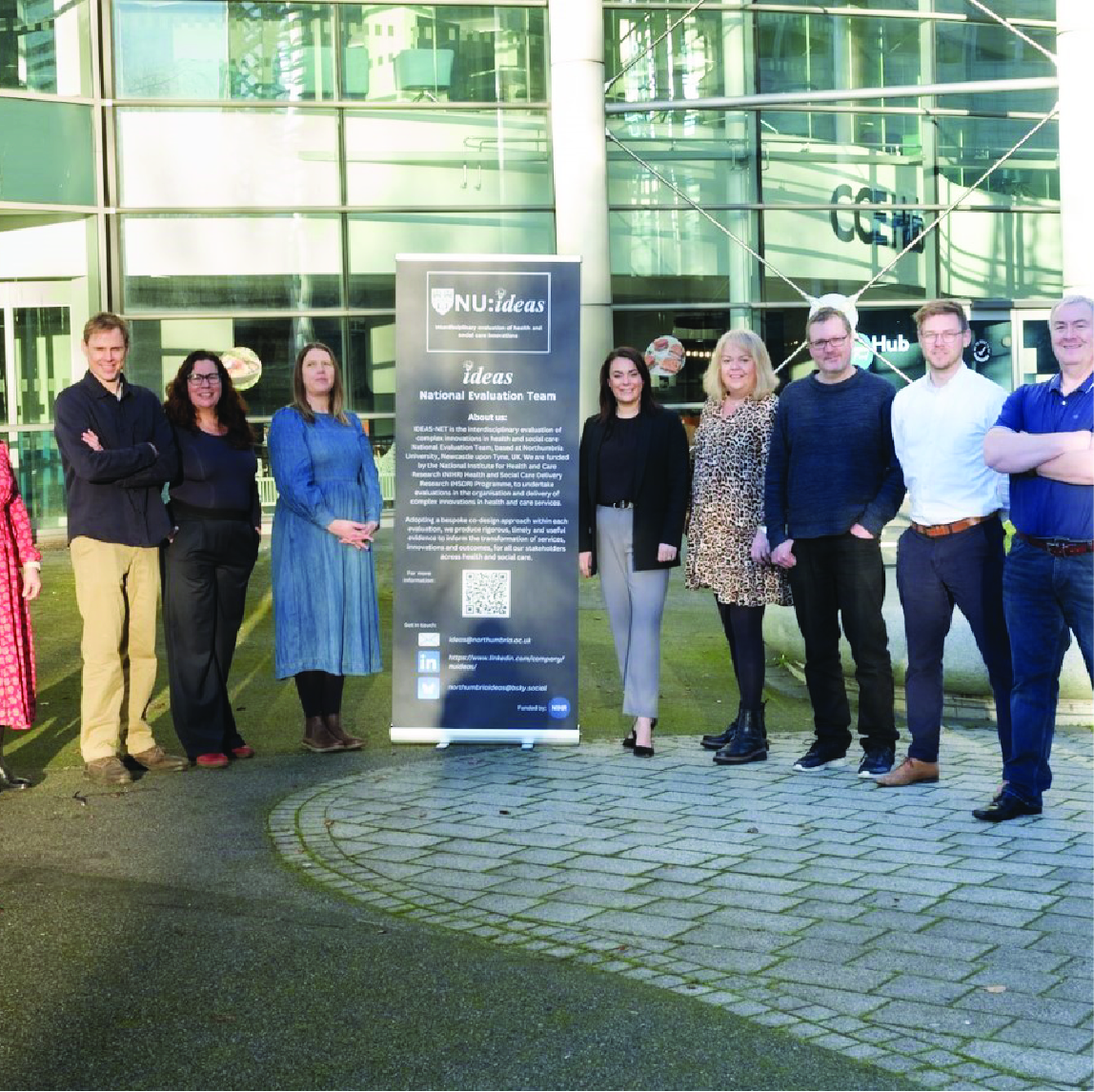-
Study
-
Quick Links
- Course Search
- Unlock Your Potential
- Still time to Apply
- Higher and Degree Apprenticeships
- Continuing Professional Development
- Still time to apply
-
Undergraduate
- Course Search
- Application Guides
- UCAS Exhibitions
- Foundation Years
- Fees and Funding
- School & College Outreach
- Information for Parents
-
Postgraduate
- Course Search
- Application Guide
- Postgraduate Research Degrees
- Flexible Learning
- Fees and Funding
- Change Direction
- Register your Interest
-
Student Life
- Students' Union
- The Hub - Student Blog
- Accommodation
- Northumbria Sport
- Support for Students
-
Experience Northumbria
- Open Days & Events
- Virtual Tours
- Campus Tours
- Life in Newcastle
-
-
International
International
Northumbria’s global footprint touches every continent across the world, through our global partnerships across 17 institutions in 10 countries, to our 277,000 strong alumni community and 150 recruitment partners – we prepare our students for the challenges of tomorrow. Discover more about how to join Northumbria’s global family or our partnerships.
View our Global Footprint-
Quick Links
- Course Search
- Undergraduate Study
- Postgraduate Study
- Information for Parents
- London Campus
- Northumbria Pathway
- Sign up for Information
-
International Students
- Information for Students
- International Events
- Application Guide
- Entry Requirements and Education Country Agents
- Global Offices
- English Requirements
- English Language Centre
- International student support
-
International Fees and Funding
- International Undergraduate Fees
- International Undergraduate Funding
- International Masters Fees
- International Masters Funding
- International Postgraduate Research Fees
- International Postgraduate Research Funding
-
International Partners
- Agent and Representative Network
- Global Partnerships
- Global Community
-
International Mobility
- Information for Northumbria Students
- Information for Incoming Exchange Students
-
-
Business
Business
The world is changing faster than ever before. The future is there to be won by organisations who find ways to turn today's possibilities into tomorrows competitive edge. In a connected world, collaboration can be the key to success.
More on our Business Services -
Research
Research
Northumbria is a research-rich, business-focused, professional university with a global reputation for academic quality. We conduct ground-breaking research that is responsive to the science & technology, health & well being, economic and social and arts & cultural needs for the communities
Discover more about our Research -
About Us
-
About Northumbria
- Our Strategy
- Our Staff
- Place and Partnerships
- Leadership & Governance
- Academic Departments
- University Services
- History of Northumbria
- Contact us
- Online Shop
-
-
Alumni
Alumni
Northumbria University is renowned for the calibre of its business-ready graduates. Our alumni network has over 246,000 graduates based in 178 countries worldwide in a range of sectors, our alumni are making a real impact on the world.
Our Alumni - Work For Us
What will I learn on this module?
You will learn about the range of micro-organisms which will include; bacteria, fungi, yeasts, viruses and single-celled organisms that inhabit the earth. You will learn about the importance of bacteria, fungi, yeasts and viruses with respect to biotechnology and the bioinformatic approaches that are used to investigate the diverse habitats they inhabit. You will also learn about the principles of taxonomy and systematics which provide the basis for the classification bacteria, fungi, yeasts, viruses and single-celled organisms into hierarchical groupings.
Underpinning theoretical concepts and principles will be covered in a lecture course that will be informed, illustrated and applied through a strong practical element. You will be trained in basic techniques of bacteriology and virology involving the selective isolation and identification.
How will I learn on this module?
You will learn through lectures, laboratory practical sessions. The lectures will cover the theories and the concepts that will enable you to tackle a series of guided practical sessions that will also be drawn from current research. You will work on these during hands-on sessions in the biological laboratories, which are fully equipped with the latest equipment.
How will I be supported academically on this module?
You will be given lecture materials and directed reading to inform both self-directed learning and in-class activities. Support will include feedback from tutors throughout the taught material, and hands-on practical sessions.
What will I be expected to read on this module?
All modules at Northumbria include a range of reading materials that students are expected to engage with. Online reading lists (provided after enrolment) give you access to your reading material for your modules. The Library works in partnership with your module tutors to ensure you have access to the material that you need.
What will I be expected to achieve?
Knowledge & Understanding:
1. You will be expected to understand how taxonomic methods were originally developed and how methods have evolved.
2. You will be able to understand the difference between bacteria, fungi, yeasts, viruses and single-celled organisms
Intellectual / Professional skills & abilities:
3. You will be able to use a range of techniques to isolate bacteria, fungi, yeasts and viruses and identify them
Personal Values Attributes (Global / Cultural awareness, Ethics, Curiosity) (PVA):
How will I be assessed?
You will be assessed by online assessment composed of multiple choice questions and short answer questions which will assess your insight in biodiversity of bacteria, fungi, yeasts, viruses and single-celled organisms. On an on-going basis your tutors will give feedback on the exercises and you will record and track your progress through workbooks that accompanies the module (all module learning outcomes assessed).
Pre-requisite(s)
None
Co-requisite(s)
None
Module abstract
‘Introduction to the microbial world’ will focus on the diversity of bacteria, fungi, yeasts, viruses and single-celled organisms, as well as the habitats the bacteria, fungi, yeasts and viruses are found and their interactions within those habitats. We have designed the module so that the theoretical concepts and principles you will learn during the lecture course will then inform the strong practical element, where you will be trained in basic techniques in bacteriology and virology involving the selective isolation
Course info
UCAS Code C100
Credits 20
Level of Study Undergraduate
Mode of Study 3 years Full Time or 4 years with a placement (sandwich)/study abroad
Department Applied Sciences
Location City Campus, Northumbria University
City Newcastle
Start September 2025 or September 2026
All information is accurate at the time of sharing.
Full time Courses are primarily delivered via on-campus face to face learning but could include elements of online learning. Most courses run as planned and as promoted on our website and via our marketing materials, but if there are any substantial changes (as determined by the Competition and Markets Authority) to a course or there is the potential that course may be withdrawn, we will notify all affected applicants as soon as possible with advice and guidance regarding their options. It is also important to be aware that optional modules listed on course pages may be subject to change depending on uptake numbers each year.
Contact time is subject to increase or decrease in line with possible restrictions imposed by the government or the University in the interest of maintaining the health and safety and wellbeing of students, staff, and visitors if this is deemed necessary in future.
Useful Links
Find out about our distinctive approach at
www.northumbria.ac.uk/exp
Admissions Terms and Conditions
northumbria.ac.uk/terms
Fees and Funding
northumbria.ac.uk/fees
Admissions Policy
northumbria.ac.uk/adpolicy
Admissions Complaints Policy
northumbria.ac.uk/complaints









